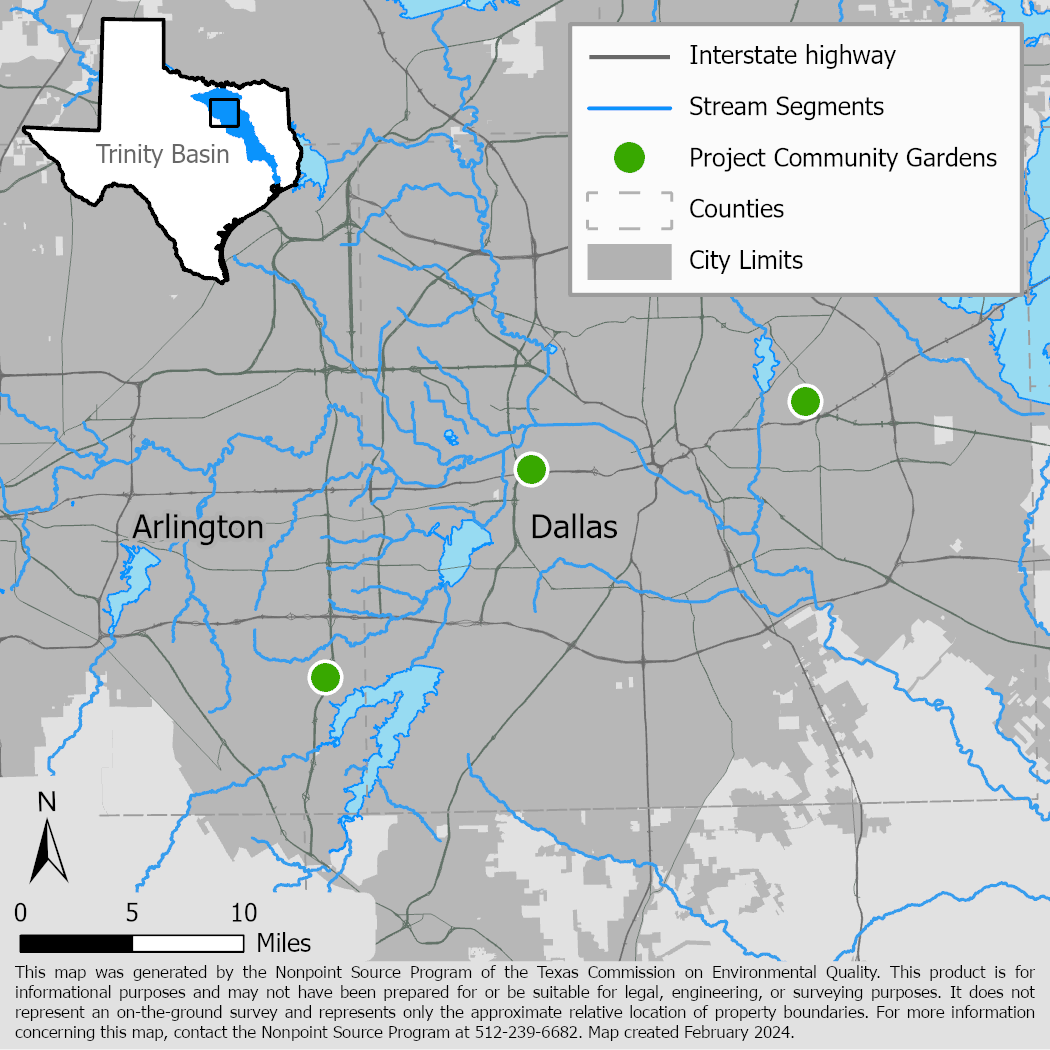Dallas-Fort Worth Watersheds: Analyzing Best Management Practices
Texas Water Resources Institute is assessing the effectiveness of stormwater best management practices at community gardens in Dallas-Fort Worth area watersheds.

On this page:
Project Area
River Basin: Trinity
Water Bodies: Upper Trinity River (0805) and Joe Pool Lake (0838)
Location: Cities of Dallas and Arlington
Background
The presence of urban agriculture is growing quickly in many communities throughout Texas, including the Dallas-Fort Worth area, and community gardens have become more popular. There has been little research conducted to determine their potential impact on stormwater quality. This project will assess the impacts of management strategies at three community gardens and determine their effectiveness at reducing pollutants.
Project Description
January 2023 – August 2026
The Texas Water Resources Institute will monitor three community gardens in the Dallas-Fort Worth area to determine their impacts on pollutant levels in nearby water bodies. Two of the community gardens will have stormwater best management practices and one without will be selected as a control.
Stormwater runoff samples from the community gardens will be collected and analyzed for total suspended solids and nutrient levels. Samples will be compared over time to determine if runoff from the community gardens with stormwater best management practices has less pollutants than the control community garden.
Outreach events will promote the project and discuss water quality results with the community. Project staff will create informational materials to share results from the project, promote stormwater best management practices, and encourage proper irrigation and fertilizing practices.
For More Information
Texas Water Resources Institute
To find out more about the NPS Program, call 512-239-6682 or email us at nps@tceq.texas.gov.

 Back to top
Back to top